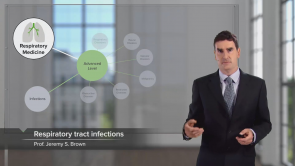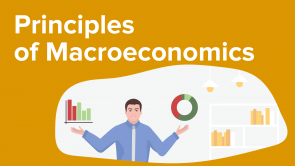Policy

Über den Vortrag
Der Vortrag „Policy“ von James DeNicco ist Bestandteil des Kurses „Principles of Macroeconomics (EN)“. Der Vortrag ist dabei in folgende Kapitel unterteilt:
- Principles of Macroeconomics: Policy
- The Pareto Optimality & The Role of Government
- The Three Roles of the Government
- The 3 Main Tools of Fiscal Policy / 1. Increase Government Spending
- 2. & 3. Tool: Corporate Tax Cut / Income Tax Cut
- Accomodating Monetary Policy / Structural Policy
Quiz zum Vortrag
What is Pareto Optimal?
- An allocation of goods is Pareto Optimal if there is no way to rearrange the allocation such that at least somebody is better off without making any other one worse off.
- An allocation of goods is Pareto Optimal if there is always a way to rearrange the allocation such that at least somebody is better off without making any other one worse off.
- An allocation of goods is Pareto Optimal if there is no way to rearrange the allocation such that at least somebody is worse off without making any other one better off.
- An allocation of goods is Pareto Optimal if there are different ways to rearrange the allocation such that at least somebody is better off without making any other one worse off.
Which of the following answers are correct?
- Externalities are basically a form of market failure.
- Smoking in pubs is an example for Moral Hazard.
- Moral Hazard is a derived problem of asymmetric information.
- Externalities always have a negative effect.
- Moral Hazard is a derived problem of symmetric information.
What are the 3 main tools of fiscal policies?
- Increase government spending; cut corparate taxes; cut income taxes
- Decrease government spending; cut corparate taxes; cut income taxes
- Increase government spending; cut corparate taxes; cut business taxes
- Increase government spending; cut corparate taxes; cut capital gains taxes
- Increase government spending; cut business taxes; cut capital gains taxes
Kundenrezensionen
5,0 von 5 Sternen
| 5 Sterne |
|
5 |
| 4 Sterne |
|
0 |
| 3 Sterne |
|
0 |
| 2 Sterne |
|
0 |
| 1 Stern |
|
0 |




